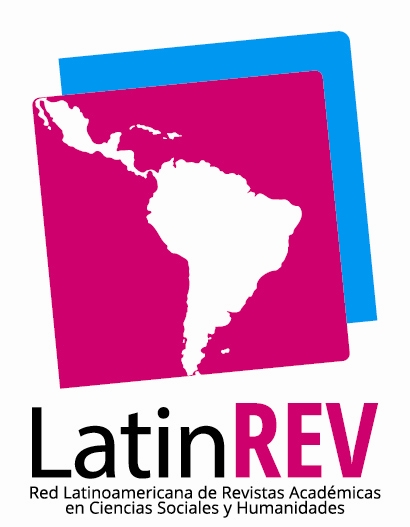The use of the technique of Content Analysis in a Research Practice carried out by the Language Teacher of the UNSL
Keywords:
Languages -Textiles, Knowledge, Content Analysis, SensesAbstract
The present study deals with a qualitative research practice in which the Content Analysis technique was used to investigate the Mapuche textile iconography in the context of the textile traditions of the Andean strip of Our America. The problem that was sought to be investigated was developed in different levels of analysis focusing on searching, as a general study objective, the meanings that underlie the Mapuche textile icons in the context of the textile tradition of the Andean strip of Our America. Our theoretical framework for the study of textiles refers, first, to the theory of enunciation in general terms, developed by Émile Benveniste (1974) and specifically in the analysis of axiological subjectivemas posed by Catherine Kerbrat Orecchioni (1986). At the same time, the developments of sociolinguistics, including the approaches of John Lyons (1997), allow us to understand the textiles we study in their creation context. Regarding the epistemological framework, the concepts expressed by Boaventura de Sousa Santos (2009) in their so-called Epistemology of the South allow us to place our analysis in the context of that knowledge produced from other knowledge, emerging in the so-called border epistemology, as expressed by Walter Mignolo (2002).
Downloads
References
Accornero, A. (2007). El rol del diseño y los sistemas simbólicos en América Prehispánica. Córdoba: Brujas. Recuperado de: http://books.google.com.ar/books?id=02iJ- (12/12/2012).
Andréu Abela, J. (2000). “Las técnicas de análisis de contenido: una revisión actualizada”, en Fundación Centro Estudios Andaluces, Universidad de Granada, Vol. 10, N° 2, 1-34.
Arnold, D. Y. y otros (2007). Hilos sueltos: Los Andes desde el textil. Bolivia: PLURAL e ILCA EDITORES. Recuperado de: https://books.google.com.ar/books?id=sUi6p7OcPWkC&pg (21/02/2019).
Benveniste, E. (1974). “Los niveles del análisis lingüístico”, en Problemas de lingüística general, I. México. Siglo XXI.
Corcuera, R. (2010). Herencia Textil Andina. Buenos Aires: FUNDACIÓN CEPPA.
De Sousa Santos, B. (2009). Una epistemología del sur. México: CLACSO y Siglo XXI.
Fiadone, A. E. (2007). Simbología Mapuche. El territorio tehuelche. Buenos Aires: MAIZAL Ediciones.
Fiadone, A. E. (2010). El diseño indígena argentina. Una aproximación estética a la iconografía precolombina. Buenos Aires: La Marca.
Gallardo, I. F. y Cornejo, B. L. E. (1992). Colores de América. Chile: Museo Chileno de Arte Precolombino.
Gomes Campo, C. y Ribeiro Turato, E. (2007). “Análisis de contenido en investigaciones que utilizan la metodología Clínico-Cualitativa: Aplicación y Perspectivas”, en Revista Latino-am Enfermagem, marzo-abril, Vol. 17, N° 2.
Hoces de la Guardia, S. y otros (2011). “Registro cromático en textiles de la cultura Arica en el período intermedio tardío: caso inkuñas”, en Boletín del Museo Chileno de Arte Precolombino, Vol.16 no.1 Santiago 2011. Recuperado de: http://www.scielo.cl/scielo.php?pid=S0718-68942011000100005&script=sci_arttext (12-06-2015).
Juárez, A. M. G.; Luengo, D. D. y otros (2012). “Aspectos socioculturales en la enunciación pictórica de pueblos originarios: el caso de los Mapuches”, en Libro de Resúmenes del Segundo Congreso Internacional de Comunicación Pública de la Ciencia: COPUCI. San Luis: Editorial Universidad Nacional de San Luis.
Juárez, A. M. G. y Luengo, D. D. (2013). “Lo enunciado en el diseño textil mapuche. Su continuidad en la textilería de los artesanos tejenderos de la provincia de San Luis”, en E-Book - 1ra Ed.-Rosario: UNR Editora. Editorial de la Universidad Nacional de Rosario. ISBN 978-987-702-055-7. Recuperado de: https://issuu.com/visualidadesinfinitas/docs/visualidades2.0
Juárez, A. M. G.; Luengo, D. D. y otros (2014). La influencia del contexto en la conformación iconográfica Mapuche. En: E-Book -1ra Ed.-Rosario: UNR Editora. Editorial de la Universidad Nacional de Rosario. ISBN 978-987-702-055-7. Recuperado de: https://issuu.com/visualidades2.0/docs/_compaginacion_final
Juárez, A. M. G.; Guaycochea, B. y otros (2014). “La condición de la mujer en el espacio artístico de un lenguaje ancestral”. Editorial de la Universidad Nacional de San Martín UNSAM/IDAES. ISBN 978-987-1435-89-0. Recuperado de: http://www.idaes.edu.ar/sitio/noticias/novedades.asp?idNov=346&tipo=idaes
Juárez, A. M. G. (2018). “Saberes textiles desde el sur: lenguajes y sentidos de resistencia de los pueblos indígenas de Nuestra América. Memorias de una Investigación”, en Acta de Resúmenes de la: VIII Conferencia Latinoamericana y Caribeña de Ciencias Sociales. Las luchas por la Igualdad, la Justicia Social y la Democracia en un mundo turbulento. Primer Foro Mundial del Pensamiento Crítico. Buenos Aires: CLACSO.
Kerbrat Orecchioni, C. (1986). La enunciación. De la subjetividad en el lenguaje. Buenos Aires: Hachette.
Lyons, John. (1997). Semántica Lingüística: Una Introducción. Barcelona: Paidós.
Mege, R. P. (1987). “Los símbolos constrictores: una etnoestética de las fajas femeninas mapuches”, en Boletín del Museo Chileno de Arte Precolombino, N° 2, 89-128. Santiago de Chile. Recuperado de: http://www.memoriachilena.cl/archivos2/pdfs/mc0035077.pdf (29/08/2014).
Mignolo, W. D. (2002). Historias locales/diseños globales. Colonialidad, conocimientos subalternos y pensamiento fronterizo. Madrid: Akal.
Tanodi, B. (2010). Escritura de los pueblos originarios e hispanoamericanos. Córdoba: Brujas.
Downloads
Published
Issue
Section
ARK
License
Copyright (c) 2019 Alejandra Juárez

This work is licensed under a Creative Commons Attribution 4.0 International License.






